HIGH POINT, N.C. – Adrian Wilson's prior trips home always had been different because he wasn't interested in walking into his memories.
This time, however, the echo of his past was inevitable. The whole reason for his return was to go back to T.W. Andrews High School where, after more than a decade, administrators finally had decided to retire the No. 9 he wore on the football field. Wilson hadn't returned to the school since before he was drafted, and roaming the gym and weight room transformed him back to a 17-year-old, when an NFL career was still a dream in progress.
Hanging out with his two closest high school friends, Adrian Mack and Anthony Johnson, was part of it too. How could it not stir up the days when they'd head over to Kelly's convenience store to get their daily fix of hot dogs, Cheetos and Frutopia?
Re-living yesteryear usually didn't interest Wilson. Delving into his psyche wasn't a favorite topic either. Mack and Johnson – whom Wilson calls "Ant" – were the only friends who really knew him. His wife Alicia, with whom Wilson also went to high school, did too. His was a small circle and he had never seen reason to have it otherwise.
"A lot of it was me just protecting my feelings and just protecting who I am as a person," Wilson said. "You don't ever want to really expose yourself too much to people you don't know."
In some ways, though, Wilson didn't even know himself. Not completely.
This time, Wilson was finally comfortable enough to crack open his life. Over two days, he drove around in a rented SUV re-living his high school years, talking about how he grew up, the death of his older brother and two teammates, his mom's work ethic and his mostly absentee father.
The Cardinals' three-time Pro Bowl safety has emerged as the face of his franchise. But the legacy Wilson leaves has to go deeper than football, he believes. It's why getting a number retired at his high school is so important. It's why revealing himself more than he ever had was now necessary.
"It's weird how I am and it's like that for a reason," Wilson said. "You never really understand how you're molding yourself until somebody else tells you. …
"I suppress a lot of stuff. I do that because I don't want nobody else to really feel my pain or have to deal with a lot of the stuff I have had to deal with. I always wanted to be positive. I always wanted to be that guy that got out of here."

Wilson sits in his mom's living room. He's crashed her homestead, and even though she knows he is in town and has a camera chronicling his moves, she is still a little irritated to be in front of the lens. Wilson – knowing she would be just like this -- takes boyish glee in it.
Eventually, though, Wilson climbs upon a bar stool in the corner, head down. Sometimes he fiddles with his phone, and sometimes he adds a comment. Mostly, he stares into the nothingness of the floor, listening to Juanita Guy talk about him. Here, he isn't the muscle-bound Pro Bowler. Here, he's the youngest son and little brother, and he knows his place.
It's not his house, the one he spent the last chunk of his high school years in over on Willoubar Terrace. This is the one he bought for his mother after he signed his first NFL contract, when he took what was left of the $535,000 signing bonus after taxes and made sure Guy had a nice home. He made sure she had a better car too, and the used Lincoln Town Car remains in his mom's driveway.
Wilson had a baby on the way and rent was tough to come by for his place in Arizona because his paychecks weren't coming in yet, but "his mom was first," Alicia Wilson said. "I understood that."
Guy and her children lived in various projects in High Point while Wilson was growing up. She'd work multiple jobs, sometimes three at a time, providing for Adrian, older brother William Guy and twin older sisters Tina and Nina McNeil. Wilson watched his mom, and it seeded his work ethic. And that work ethic would seed Wilson's dreams.
In fourth grade, on a piece of paper his mother kept, Wilson wrote down that he'd end up as a !NBA or NFL player. As he got older, his mom marveled at his desire to go to the gym every day, or to go running. Basketball was his game. He was a fixture on the AAU scene and, for the longest time, football wasn't an option. His mother wasn't fond of her baby, still skinny, playing the sport. Frankly, Wilson had little interest in the physical part of the game.
That changed. That changed as Wilson became a chiseled 6-foot-2 and 195 pounds, and it changed about the time Guy finally moved her family into the house on Willoubar, where Wilson would hone his basketball shot at the church down the street or pass the time doing backflips off the broken-down cars in the front yard.
The coaches at Andrews believed athletes were better off playing multiple sports. They also understood there wasn't much need in college basketball for 6-2 or 6-3 forwards, and they wanted to see what Wilson could do on the football field. They convinced Wilson, who never met a challenge he wasn't ready to beat.
Playing free safety and wide receiver – "We were a two-platoon team, but we weren't so hard-headed that we didn't play him both ways," Wilson's Andrews football coach, Dave Mizell, said – Wilson became the main passing target for a run-dominated team and the defensive star, grabbing 11 interceptions as a junior.
He wasn't done with basketball, but he understood its limitations. Wilson can still dunk, but when it comes to the idea where basketball might have taken him, he is blunt.
"I don't believe in pipe dreams," he says.
Cards' safety goes back to High Point

Best friends from high school: Adrian Mack, Adrian Wilson and Anthony Johnson.

Wilson points out the weight room records he once held in high school.

Wilson's father Jimmy Wilson holds Adrian's son Brooklyn.

Wilson signs autographs after his ceremony while daughter Aubrei waits.

Wilson looks over the trophy case in the Andrews gym lobby.
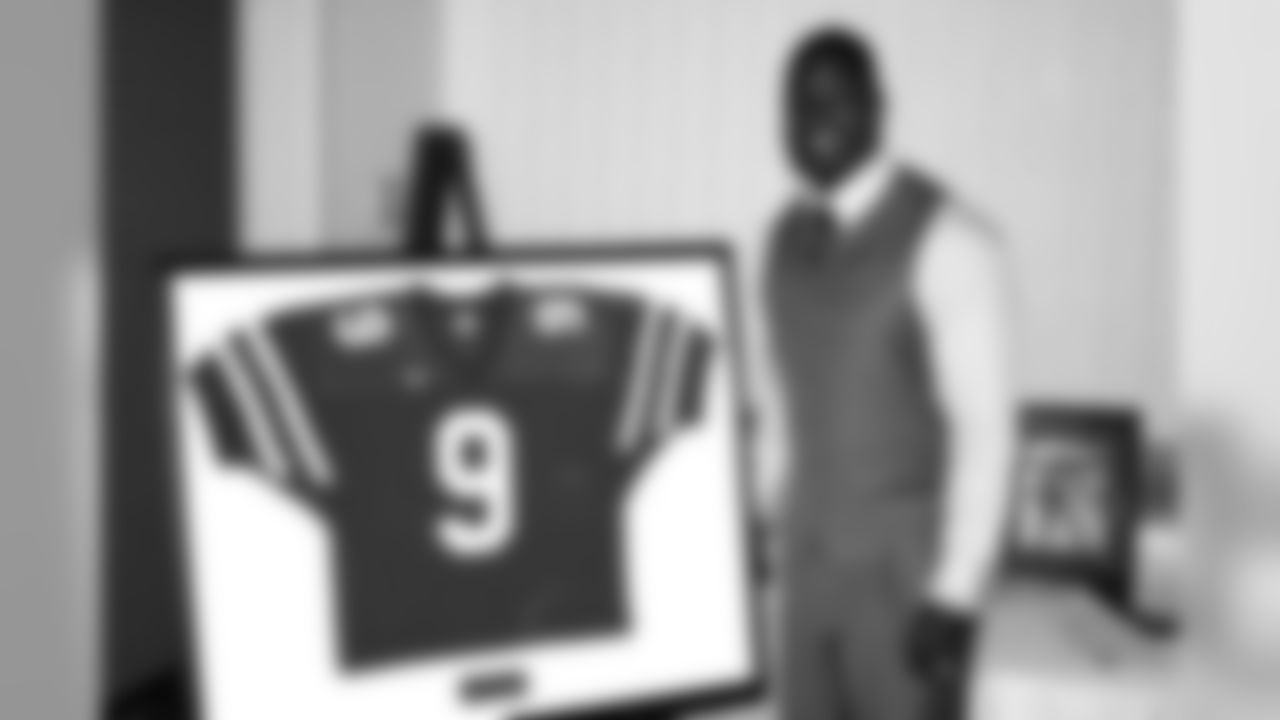
Wilson with his retired jersey.

Wilson, friend Adrian Mack and Cards' director of player personnel Steve Keim.
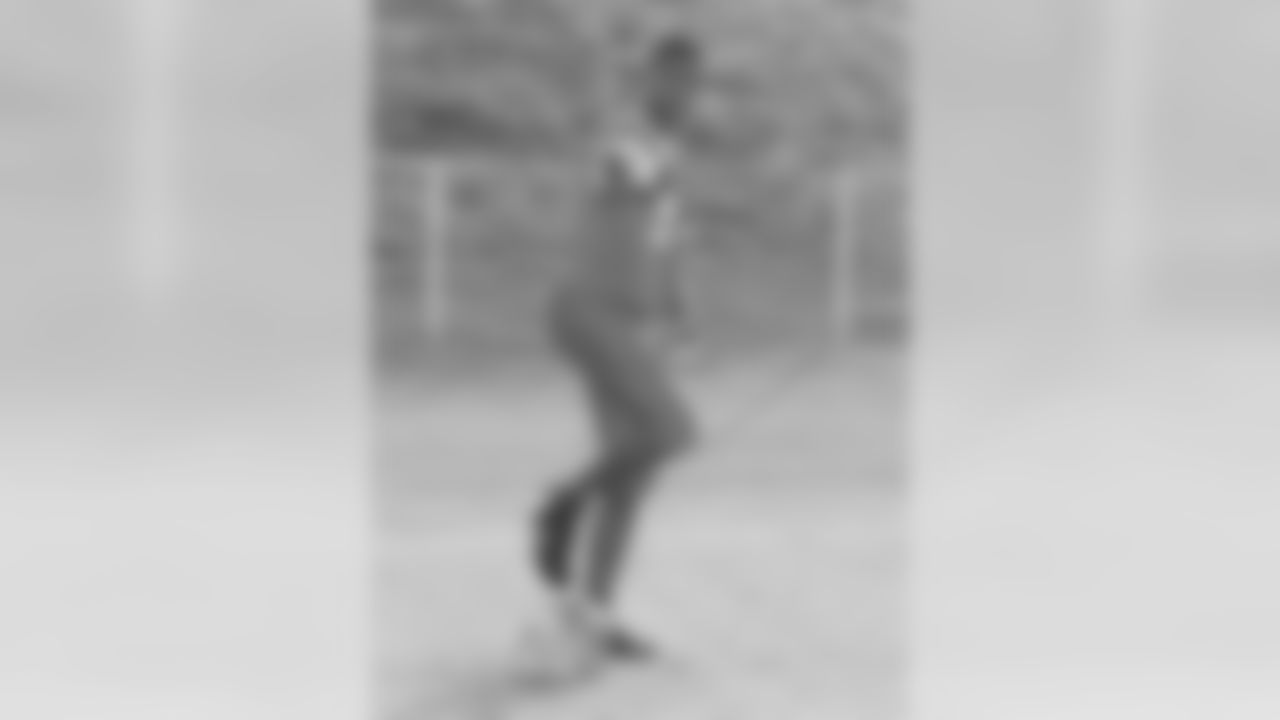
A very young Adrian as high school football star.
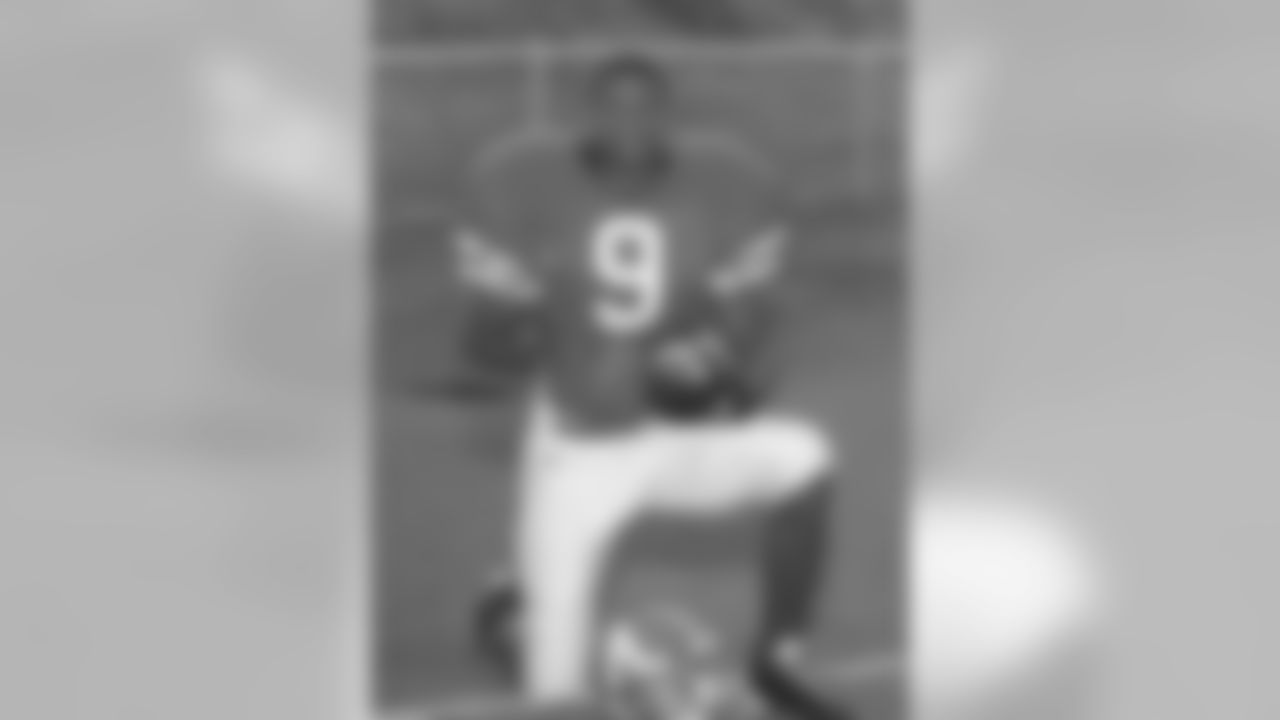
Wilson in his senior high school football portrait.

Wilson with his McDonald's All-American plaque for basketball back in the day.

Adrian takes a walk through his high school weight room.

Adrian with his family: (from left) sister Nina McNeil, nephew Justin McNeil, sister Tina McNeil and mother Juanita Guy.
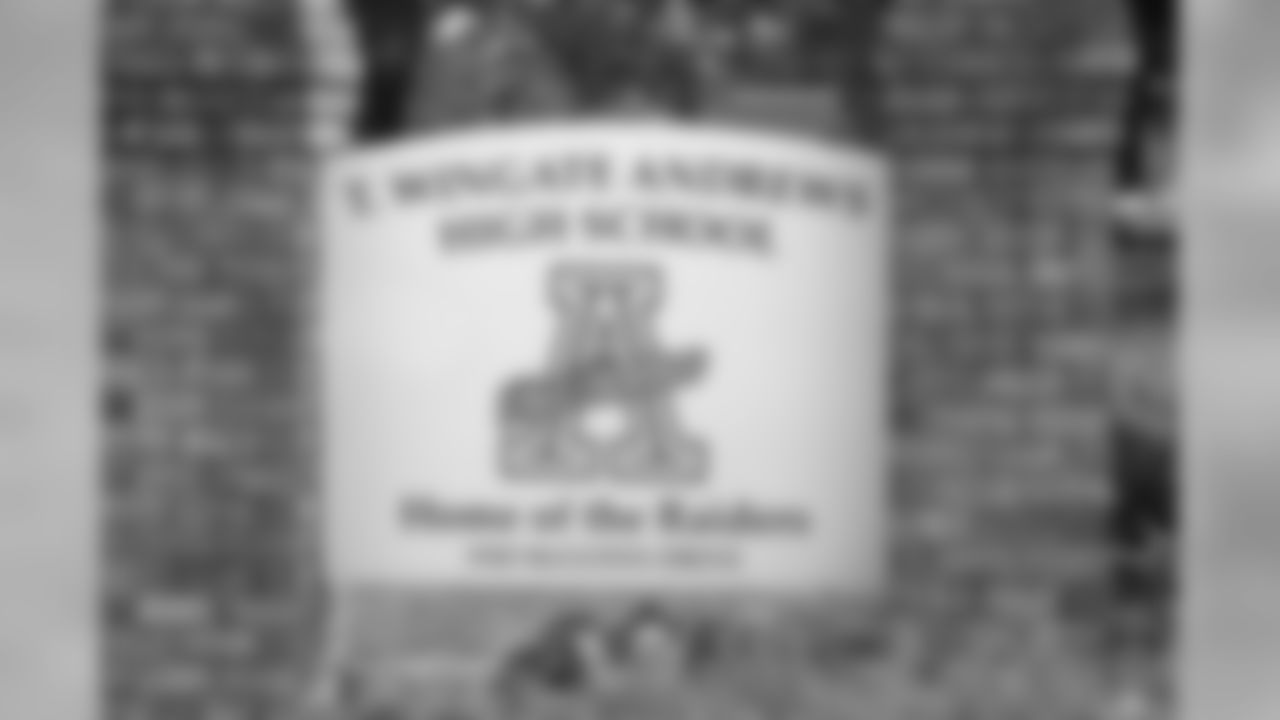
The sign outside Wilson's high school.

Wilson's house on Willoubar Terrace where he spent his last years in High Point.

Wilson received the key to the city from High Point's mayor.
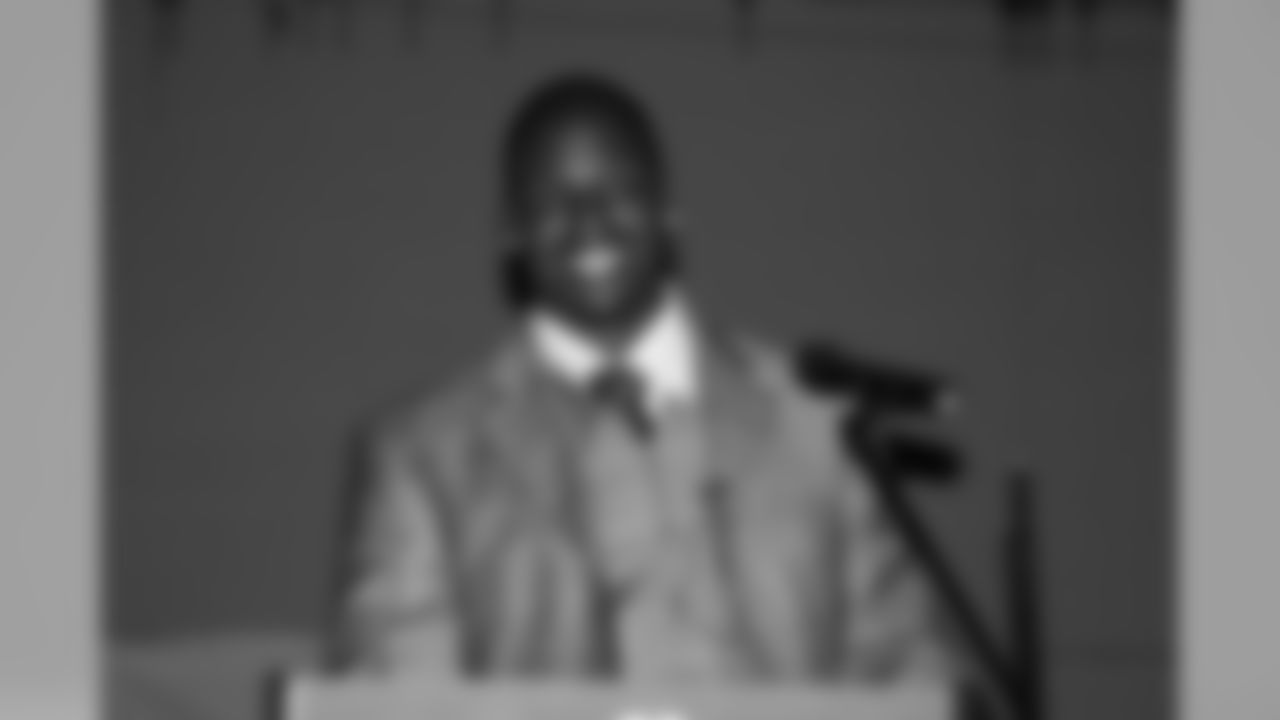
Wilson gives his speech during his jersey retirement ceremony in June.

A.J. Simeon Stadium, where Wilson played in high school.
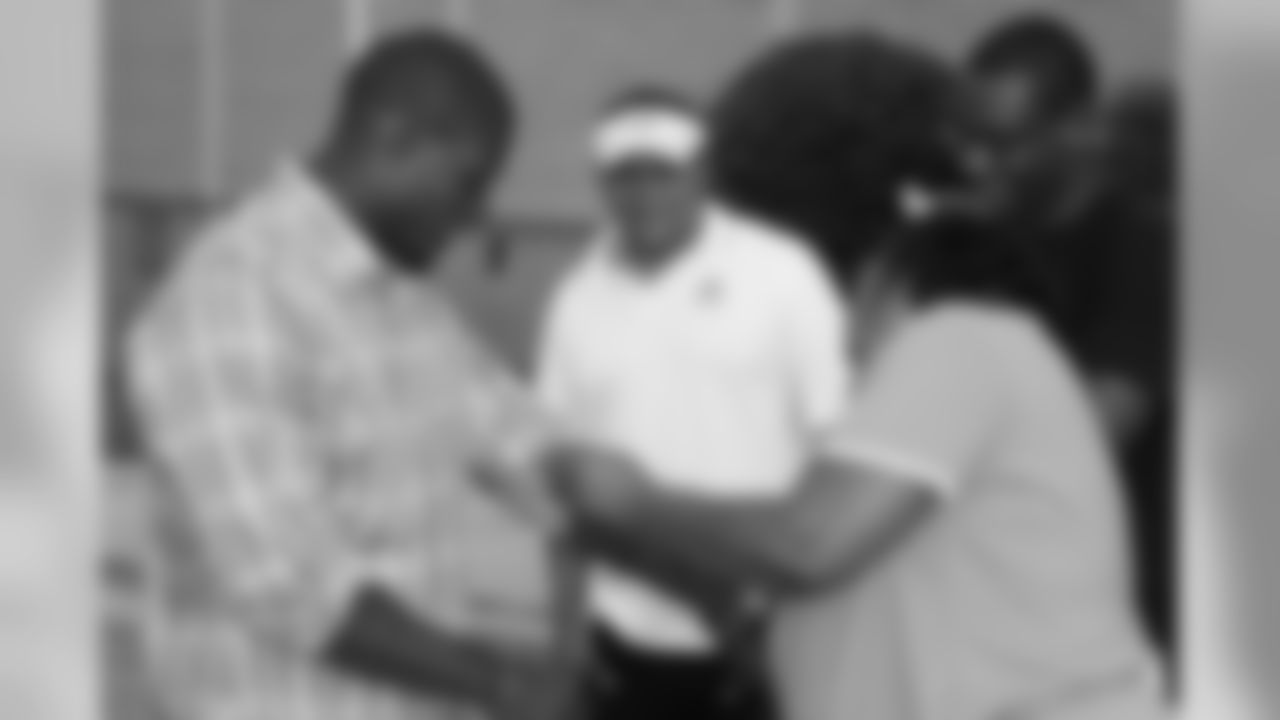
A school worker investigates one of Wilson's tattoo.
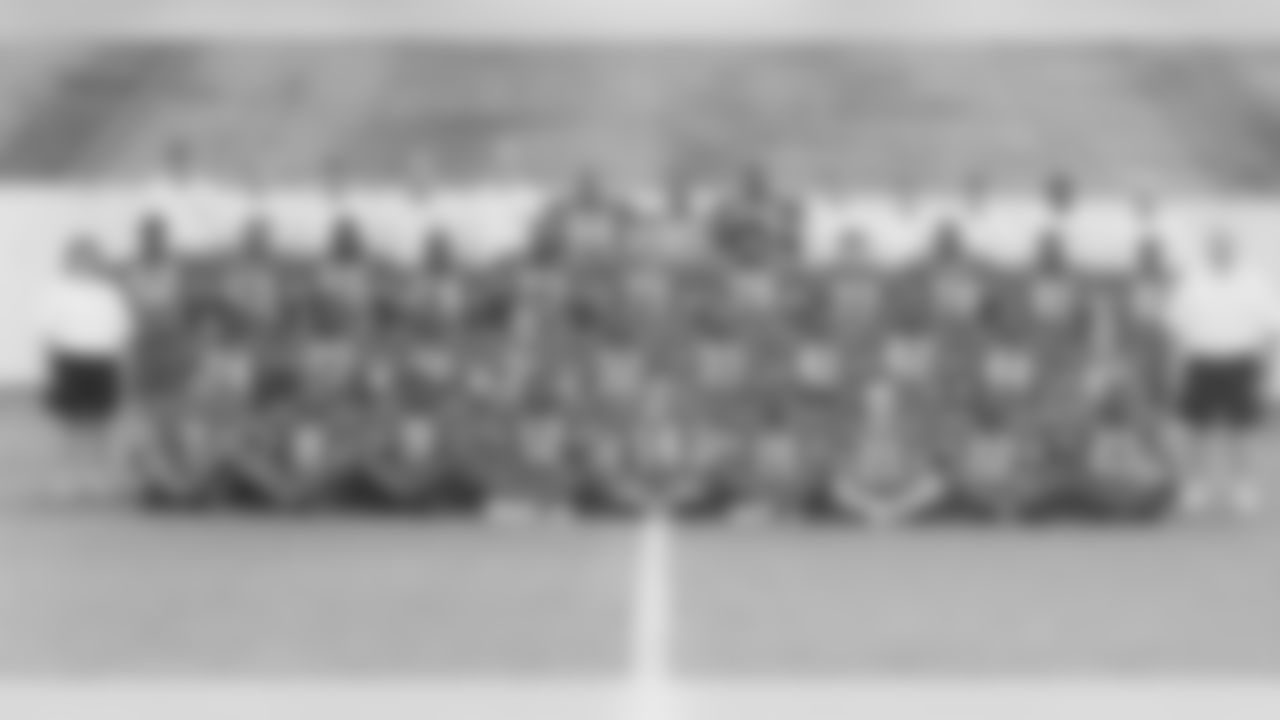
The Andrews football team, with Wilson wearing No. 9.
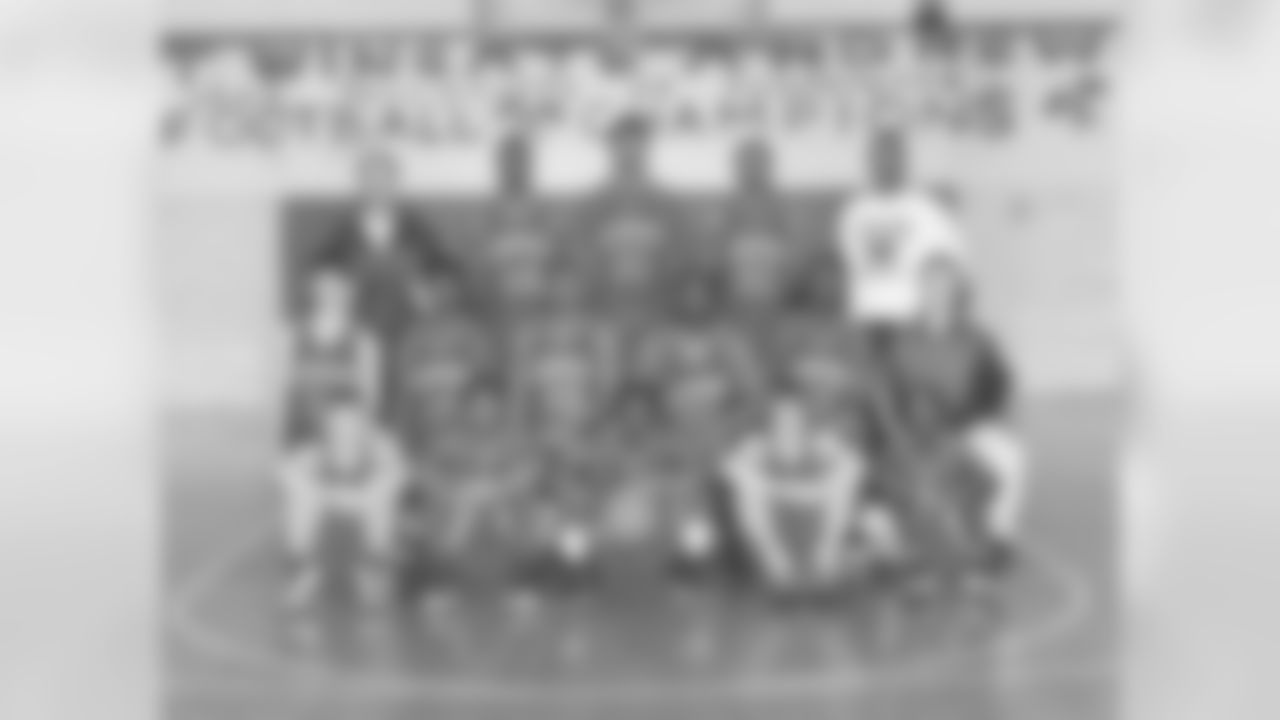
The Andrews basketball team, with Wilson wearing No. 44.
Blood covered his shirt. Blood was everywhere.
And Adrian Wilson ran.
He had been on the other side of town but he ran all the way home, scared and shaking and unable to tell his mom what happened for what seemed like an hour. Wilson was 16, and he had just gone to the movies with his older brother, and that's all the day should have been about.
William Guy had been a sports star himself, and Wilson made him his athletic role model. But Wilson wasn't blind to reality either; his brother was heavily into drugs. After Guy's pager went off at the movie theater, Wilson climbed in the car to join Guy on an errand to a house far from Wilson's neighborhood. While Wilson waited, his brother went inside. Something went wrong in an ensuing drug deal. Gunfire erupted. To the horror of his little brother, Guy stumbled out of the house, shot and bleeding. Wilson ran. His brother died.
"It was one of the things in my life I wish I never saw," Wilson said.
On a June evening 14 years later, Wilson thinks about driving past the house where his brother was killed and decides he can't handle it. There is too much pain to revisit with this particular memory. In high school, Wilson locked away many of his thoughts. If his brother's death affected him, he wasn't about to broadcast it.
"Adrian was very private," Mizell said, "and I'm not a person who is going to pry."
There were hints. Wilson changed his basketball uniform number to 44, the number Guy wore playing football at the rival high school. Success became a nod to his brother, who had long believed in Adrian. William Guy was the one who gave Wilson confidence when Wilson wasn't getting it done on the field, the main male role model in Wilson's life.
"As a matter of fact," Juanita Guy said, "my oldest son had said, 'Adrian is the one who is going to make it.' "
Wilson's June return to High Point carried with it tragic coincidence. Just a couple of days before Wilson’s number was retired – at a ceremony to be attended by the current Andrews football team – one of the Andrews players was killed. Quietly and without fanfare, Wilson went to meet with the family of Anthony Hayes, offering his help.
That wasn't the only reminder of his brother's death. Two of Wilson's Andrews' teammates – Jacob Walker and Montre Bullock – also were killed during their senior year. Bullock died in the spring in an apparent suicide. But Walker was slain by stray gunfire in the parking lot of a local strip mall just a couple of hours after Andrews played its second football game of the preceding fall.
"We were just trying to pull ourselves together," said Mack, the high school linebacker who has become Wilson's go-to contact for all things High Point. "Me and Adrian were kind of like, 'We've got to take the team, pull them together. We've got to finish.' "
Andrews lost three more games but finally corrected course, eventually winning its conference and making the playoffs.
"I think Adrian takes the negative," Alicia Wilson said, "and turns it into something else."

Before the jersey retirement began, Wilson spent a few minutes in the Andrews gym, doing a local television interview and waiting to be brought into the auditorium. He also spent a couple of minutes with his father, who was holding Adrian's baby son, Brooklyn.
Jimmy Wilson wasn't around much when Adrian was growing up. Not unless Adrian went to find him, hanging out in a housing project nicknamed "The Lookouts" with others who "really didn't do nothing with their lives," Wilson said.
"They used to always talk about what they could do, and what they was growing up," Wilson said. "They'd say they were better than me in basketball, better than me in football, 'I was a way better athlete than you.' I used to hear that all the time when I was with my dad."
The constant chip Wilson always has on his shoulder was fed by moments like that. It didn't matter who was telling him he wasn't as good as others, only that someone was saying it. He burned to prove them otherwise. He's done that now.
He's also become the father he had wanted. Oldest daughter Aubrei, middle son Adrian Jr. and Brooklyn never will be wanting because of their father's huge paychecks. But he is admittedly hard on them. Wilson believes "it's so much easier to have life lessons when you struggle," and if his children will be insulated from the kind of life he lead, Wilson is OK with creating artificial hardships.
They'll never replicate what he endured, of course. That was the whole point of enduring.
Cardinals director of player personnel Steve Keim attended North Carolina State and was on the football staff when Wilson arrived as a freshman. As a Cardinals' scout, Keim pushed for the team to draft Wilson in 2001, knowing his potential as both a player and a person.
"I don't know for sure," Keim said, "but growing up where he grew up and not having a whole lot of male role models, maybe he wanted to prove to everyone, 'Hey I'm a man and I can get the job done.' "
Having shown that, Wilson is at peace with his background. That's why Jimmy Wilson is there for the jersey ceremony, holding his grandson, taking part in his son's life when he didn't do it enough once upon a time.
"My dad even tells me that to this day, that he was a better athlete than I was but that I made better choices in my life," Wilson said. "That's something I respect from him … that he was man enough to tell me that, and a lot of parents that weren't there for their kids wouldn't say that.
"I know he has a problem, he knows he has a problem. But you know, that's just life."

After the Cardinals' momentous playoff win in Carolina in January of 2009, Wilson's family waited outside the locker room, hoping to spend some time with him before he boarded the bus for the trip back to Arizona.
When he emerged, they insisted he fetch them some food.
"You know, you appreciate stuff like that," Wilson said with a chuckle. "You're still human and you know you're still human to them."
Walking through the mall unmolested is a joy for Wilson, and he certainly doesn't expect to walk into a store and get special treatment or freebies. "That's pretty wack, to be honest with you," Wilson said. "Like the worst thing ever. … It's far from what being an athlete is.
"When it's all said and done and the cleats are hung up, you're just going to be the same person you were before you even started."
Gaining respect as a father and a small business owner (he runs High Point Shoes in Scottsdale) is as important to Wilson as anything he has gained in football. That's the message he leaves with the audience the night of his jersey retirement. He's put in the work to have earned it.
He smiled as he climbed into the car after his visit to his mother's house, after listening to her talk matter-of-factly about how good of a football player he had become. She was proud, she told her houseguests, and Wilson – sitting behind her – took note.
"She really never told me that before in her life," Wilson said.
Wilson never was a saint, and he doesn't claim to be. He had his moments shoplifting from the corner store – getting caught once or twice, but not always – or jury-rigging the pole next to his house to make sure he had cable TV and his beloved Cartoon Network.
But he emerged from High Point with a mission. His lifetime with the Cardinals and decision to forgo free agency not once but twice was rooted in his Carolina days. Wilson wants to see his name in the Cardinals' Ring of Honor, and he wants to wear no other uniform than the one he already does. Professionally, personally, he wants to be a man the next 17-year-old in High Point can emulate.
Wilson burns to leave a legacy that will endure.
"Nobody in my family has one and I'll be the first," Wilson said. "That's something I think is more important to me than anything – leaving that right mark. I want to lay a foundation down where it doesn't matter what generation you come from, you've got to respect what I did."
He always seemed to know that was the goal. With his trip back to High Point and a reunion with his past, he now understands just how he got there.
"Life throws opportunities at you," Wilson said. "You've got to be willing to sacrifice."















